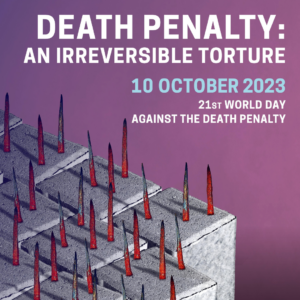
Privy Council Holds Presidential Commutation Can Remedy Breach of Constitutional Rights, But Process Must Be Fair
- News
- 31 Jul 2017
Today, the Judicial Committee of the Privy Council in London delivered judgment in the appeal of Dexter Lendore, Evans Xavier and nine others, a major test case from Trinidad and Tobago.
The case will affect approximately 60 prisoners who have had their death sentences commuted by the President in batches and collectively replaced with alternative sentences. The Court confirmed that as these prisoners did not have an opportunity to see the reports about them and to make submissions when their cases were being considered for Presidential pardon, their cases should be referred back to the President so the appropriate sentences can be determined following a fair procedure.
Dexter Lendore and the other appellants in the case, had been convicted of murder and sentenced to death, the mandatory punishment for murder in Trinidad and Tobago. All of the appellants had spent more than five years on death row and as a result their death sentences had become unconstitutional. It is recognised that remaining on death row for more than that time is inhuman treatment. However, rather than their cases being remitted to the courts for constitutional redress and resentencing, the President of Trinidad and Tobago, exercising his power of pardon, commuted the death sentences of the prisoners in batches and imposed new sentences of either life imprisonment or imprisonment for 75 years.
The appellants argued that, once their sentences had become unlawful, they were entitled to have a new sentence imposed by a judge and that, by imposing a substitute sentence the President was exercising a sentencing function, contrary to the separation of powers. Moreover, it was argued that the substituted terms of imprisonment were cruel and unusual, in that they were essentially whole life sentences imposed without any consideration of the individual circumstances of each prisoner.
Despite recognising that it might be preferable for any substitution of sentence to be made by the judiciary, the Privy Council did not find the system in place in Trinidad and Tobago unlawful, as long as prisoners are provided with the opportunity to have their individual circumstances considered, to see the reports on which the decision will be made and to have a fair opportunity to make representations.
The Court further found that, as there is a process for prisoners to have their sentences reviewed, the substituted sentences of life and 75 years imprisonment were legitimate as they did offer some prospect of release. At the same time however, the Court recognised that the system for review of sentences does not work well in practice. The Privy Council noted concerns raised by the Inspector of Prisons in Trinidad and Tobago that reviews were delayed, erratically carried out and in some instances omitted altogether.
Saul Lehrfreund, Co-Executive Director of The Death Penalty Project says:
Whilst it is positive that the Privy Council stressed the importance that each case be individually considered, the judgment provides little relief to some 60 prisoners who have been incarcerated for decades and spent many years on death row. The Court refers to the possibility of future judicial review proceedings as a way of challenging the problems with the Executive’s review process. The Death Penalty Project will be working with lawyers in Trinidad and Tobago to help prisoners with the review process, but as the Inspector of Prisons has pointed out, there are very real problems with the system as it currently operates. It’s disappointing that the Privy Council hasn’t seized the opportunity to address this.




















